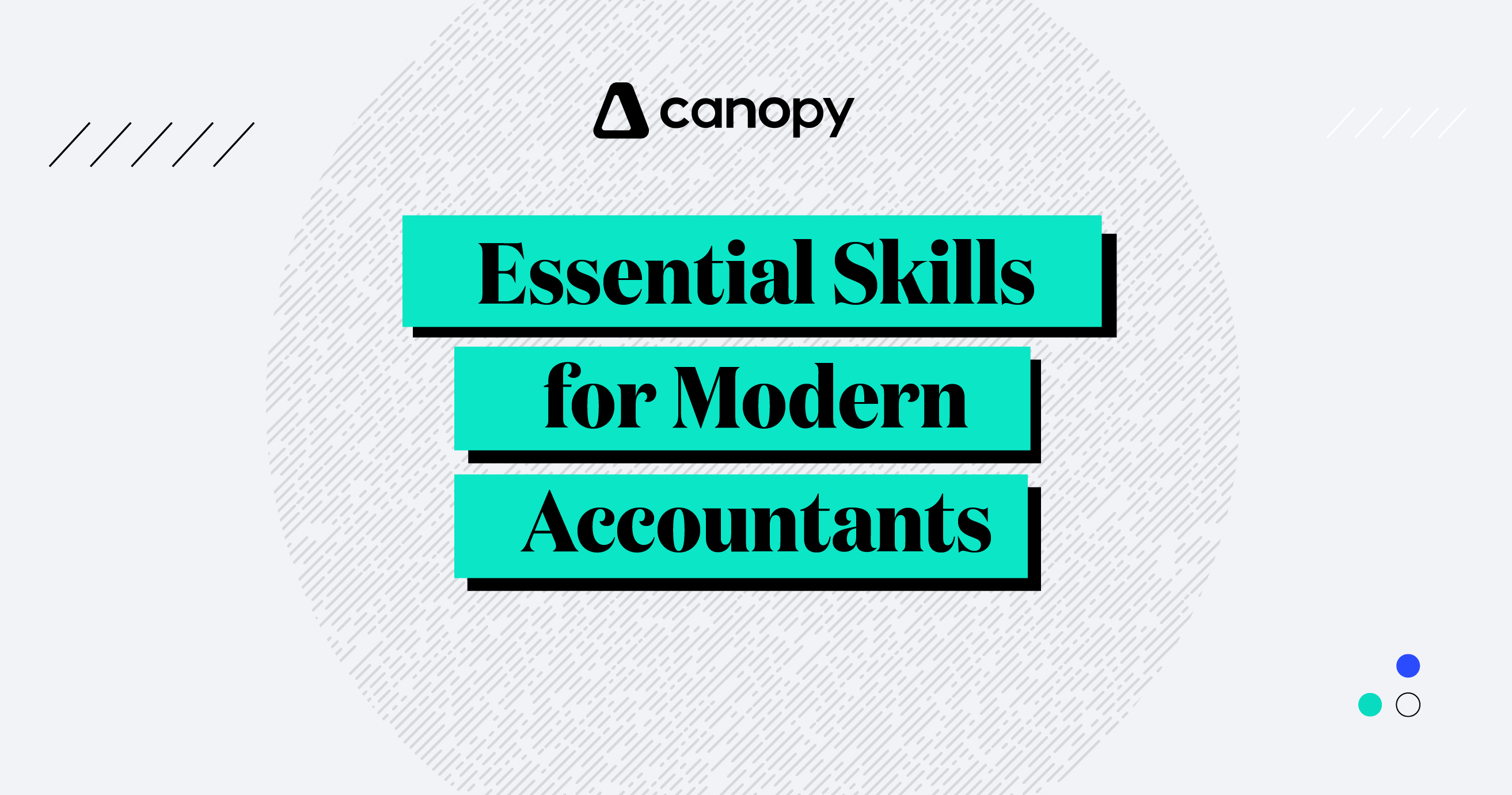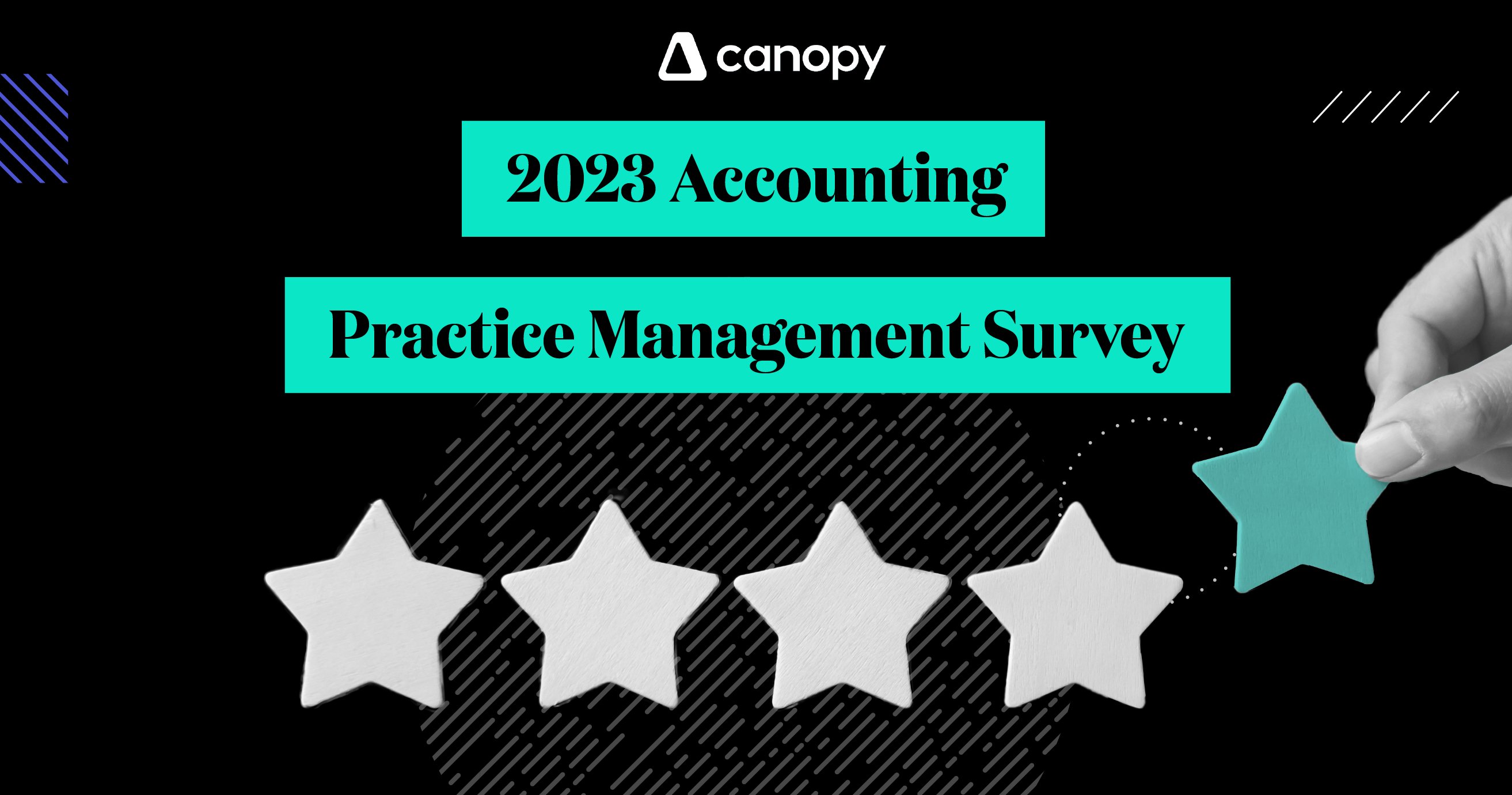It's easy to feel overwhelmed with all the skills you need to keep sharp as an accountant. Between keeping up with changing regulations, staying on top of deadlines, and managing clients, accountants have their hands full. While these essential skills can make or break your practice, it's important to remember the not-so-obvious skills that you need to build a successful practice — effective communication with clients and your staff, keeping your firm ahead of the curve with new tech, practicing effective time management, marketing your practice to attract new clients and employees, and knowing how to run the business that is your accounting firm.
Today's accountants must go beyond number crunching and become strategic business advisors. Let's delve into the crucial skills that modern accountants need to possess.
Adept Communication
The ability to communicate effectively in writing and verbally is vital for a successful accountant — both for your clientele and your employees. Clients will message you with questions about their taxes, your process, pricing information, or potentially asking for financial advice. Can you effectively communicate with clients so they get the quick answers they need without wasting your valuable time? Do you have the necessary tools to facilitate quick and efficient responses?
Accountants work with complex financial data that is difficult to understand, sometimes even for accountants. Your clients and colleagues will have diverse levels of financial understanding, which means you will be called (often) to translate intricate financial jargon into simple, understandable language.
"The recent adjustments to the GAAP regulations highlight the criticality of accountants maintaining a keen understanding of deferred tax liabilities in order to ascertain accurate net present value calculations." This sentence might make perfect sense to you, but it sounds like a different language to your average client.
Translating complex financial jargon into understandable terms for your clients allows you to communicate financial information and concepts effectively, ensuring clients clearly understand their financial situation. When you bridge the gap between technical language and everyday comprehension, you build trust with clients and empower them to make informed decisions. The ability to flex your knowledge a bit can mark you as an indispensable partner in navigating the intricate world of finance.
Clear and effective communication within your organization ensures everyone is on the same page, promoting better collaboration and minimizing errors. A study done by Forbes Advisor showed that 50% of respondents reported that ineffective communication impacted job satisfaction, while 42% said it affected stress levels. By openly sharing information and ideas, staff members can work together seamlessly, promptly identifying and addressing potential issues.
Additionally, open lines of communication foster a positive work environment where employees feel valued, heard, and motivated to contribute their best. In an accounting firm, where accuracy and attention to detail are paramount, good communication is the key to delivering exceptional service to clients and maintaining the trust and confidence of stakeholders.
Time Management Skills
Less than 1 in 5 people (18%) have a proper time management system. Eighty two percent of people do not have a Time Management system; they just use a list or their email inbox. Effective time management is essential for accountants as it allows them to handle their responsibilities efficiently and meet crucial deadlines. Accountants are tasked with managing multiple clients, projects, and financial matters simultaneously. By developing strong time management skills, accountants can prioritize their tasks, allocate resources wisely, and ensure they complete their work accurately and on time. Additionally, time management helps accountants maintain a healthy work-life balance, reducing stress and preventing burnout.
Furthermore, time management is vital for accountants to optimize their productivity and effectiveness. With proper time management, accountants can allocate sufficient time to each task, enabling them to focus on the details and accuracy of their work. By avoiding procrastination and effectively scheduling tasks, accountants can maximize their working hours, reducing unnecessary stress and last-minute rushes. Moreover, effective time management allows accountants to allocate time for professional development, stay updated with the latest accounting standards, regulations, and industry trends, enhance their expertise, and ensure they deliver the highest service to their clients.
Tech-savvy
Accountants today must be comfortable with using advanced accounting software. Speaking plainly — familiarity with cloud computing, practice management tools, data analytics, and AI is essential for a firm that wants to be relevant in the next decade. This familiarity has to go beyond just using the software — accountants need to understand how these tools work so they're able to troubleshoot issues and leverage technology for business growth. Research shows accountants could save 52 days a year by automating simple tasks.
Data & Analytics
Accountants should also develop strong data management and analysis skills to harness the power of these tools effectively. They must be able to navigate through large volumes of data, identify patterns, and extract valuable insights to inform decision-making. Using data analytics techniques, accountants can analyze financial information more efficiently, identify trends, and assess risks, thus providing valuable insights to stakeholders.
Using analytics in your accounting firm is crucial for staying competitive in today's data-driven world. By harnessing the power of data, you can gain a deeper understanding of your clients' financial situations, identify potential risks, and make more informed decisions. Analytics can help you uncover hidden patterns and trends, providing valuable insights to drive growth and improve financial performance. Additionally, leveraging analytics in your accounting processes can streamline operations, increase efficiency, and enhance the overall value you deliver to your clients. Embracing analytics is not just a trend — it's an essential tool for success in the modern accounting landscape.
Don't Sleep on Analytics: If you don't have the personnel or capacity to focus on analytics, find a tool or partner to give this invaluable resource the attention it deserves.
Knowledge of Artificial Intelligence (AI)
With the rapid advancements in AI technology, accountants should stay updated and continuously develop their knowledge and skills in this area. AI has the potential to automate repetitive accounting tasks, enhance accuracy, and improve efficiency. Accountants with a solid understanding of AI and its applications in accounting can effectively leverage this technology to streamline processes, reduce errors, and enhance overall productivity.
Accountants in today's digital age need to be familiar with advanced accounting software and develop applicable expertise in areas such as cloud computing, data analytics, and AI. By gaining knowledge and skills in these domains, accountants can adapt to the evolving ecosystem of the profession, drive business growth, provide valuable insights to their organizations and clients, and secure their foothold in the future accounting landscape.
Marketing Your Practice
As an accountant, having the ability to market your practice effectively is crucial in today's competitive landscape. It goes beyond providing excellent financial services; it is about establishing your brand, reaching potential clients, and building long-term relationships. By effectively marketing your practice, you can showcase your expertise, highlight your unique value proposition, and differentiate yourself from other accountants in the industry.
Effective marketing helps you reach a wider audience and attract potential clients. You can increase your visibility and create awareness about your services through various marketing channels such as social media, content marketing, and networking events. By showcasing your expertise and sharing valuable insights, you can position yourself as a trusted advisor, piquing the interest of potential clients seeking accounting services.
Additionally, marketing allows you to build a strong brand identity for your practice. A well-defined brand helps you convey your mission, values, and the type of clients you serve. It creates a sense of familiarity and trust among your target audience. Consistent branding across platforms and channels establishes your credibility and professionalism, making it easier for potential clients to choose you over other accountants.
Bottom line; marketing is essential for accountants to thrive in the industry. It helps you expand your reach, attract potential clients, and establish your brand identity. By investing time and effort into marketing your practice, you can differentiate yourself from competitors and build a successful accounting business.
Business Acumen
Today's accountants are strategic business partners. They need to understand business operations, industry dynamics, and market trends. This understanding enables them to contribute to strategic planning, business decision-making, and performance management. A strong understanding of business is crucial for accountants in today's competitive landscape. It allows them to provide valuable insights and analysis that drive informed decision-making within organizations. Accountants with business acumen can identify growth opportunities, assess risks, and develop strategies to optimize financial performance.
Furthermore, accountants with a deep understanding of business operations can help identify cost-saving opportunities, improve efficiency, and streamline processes. They can provide resource allocation, budgeting, and financial forecasting recommendations, contributing to long-term sustainability and profitability. Accounting professionals with solid business acumen also play a vital role in ensuring compliance with regulatory requirements and ethical standards. They can evaluate the financial impact of business decisions, assess the feasibility of new initiatives, and recommend adjustments to align with financial goals.
Accountants who possess strong business acumen are invaluable assets. Their ability to understand and navigate the intricacies of the business world enables them to drive growth, make informed decisions, and contribute to the overall success of organizations.
The role of modern accountants has significantly evolved from traditional number crunching. In today's dynamic business world, accountants are versatile professionals with diverse skill sets. They are experts in financial analysis and adept at interpreting complex data, providing strategic insights, and advising organizations on financial decision-making. By emphasizing adopting these multifaceted skills, accountants enhance their professional growth and play a pivotal role in driving the overall success and profitability of the organizations they serve. Their ability to navigate the ever-changing demands of the business landscape makes them invaluable assets in today's competitive marketplace.

Chris is a content manager for Canopy, joining the team with a combined eight years of experience as a copywriter, editor-in-chief, and content marketer. He's a skilled wordsmith and strategic thinker who shapes brand identity through compelling content and fosters a collaborative and innovative environment. With a passion for storytelling and a dedication to excellence, he is a driving force behind any company's success in content marketing. Champion of the Oxford comma.
READ MORE BY Chris







Get Our Latest Updates and News by Subscribing.
Join our email list for offers, and industry leading articles and content.